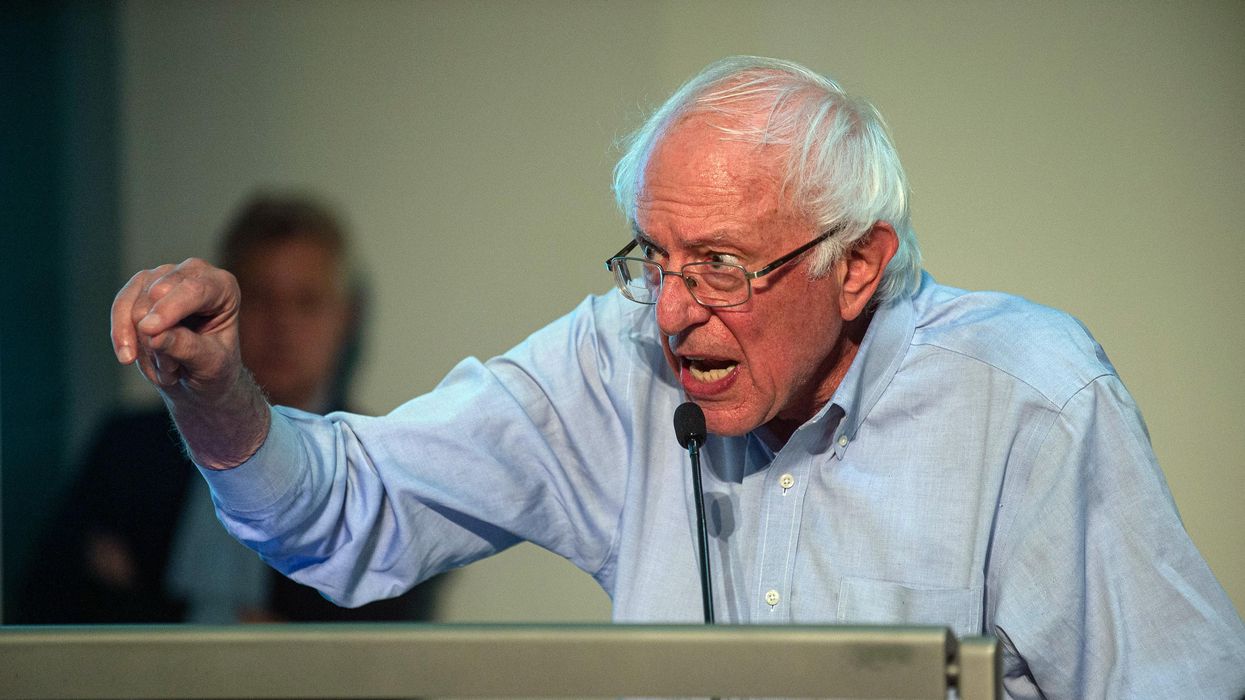Pharmaceutical giant Moderna appears to have suddenly reversed course on its plan to multiply the price of its COVID-19 vaccine, declaring that the vaccine will remain free for all Americans just hours after Sen. Bernie Sanders (I-Vermont) announced that he will be grilling the company’s CEO in a hearing before Congress next month. Last month, Moderna’s CEO, pandemic billionaire Stephane Bancel…
-
Starbucks CEO and notorious union buster Howard Schultz is facing criticism after he turned down Sen. Bernie Sanders’s (I-Vermont) request that he appear before Congress in a hearing next month. In a scathing statement, Senate Health, Education, Labor and Pensions (HELP) Committee Chair Sanders said that it is “disappointing, but not surprising” that Schultz would turn down the request from…
This post was originally published on Latest – Truthout.
-
A group of Democratic and progressive lawmakers is urging the U.S. Department of Commerce to ban corporations that are receiving money from a recent congressional subsidy bill from conducting stock buybacks for at least a decade, as companies are increasingly using stock buybacks to enrich shareholders and executives amid high inflation. In a letter sent to the Commerce CHIPS program office…
This post was originally published on Latest – Truthout.
-
Sen. Bernie Sanders (I-Vermont), now in charge of the Senate Health, Education, Labor, and Pensions (HELP) Committee, is pledging to go after executives for Starbucks, Big Pharma and railroads over their rampant greed — and he’s not afraid to use his subpoena power to do so. The pharmaceutical industry is one of his top targets, Sanders is saying, for working for decades to fleece the American…
This post was originally published on Latest – Truthout.
-
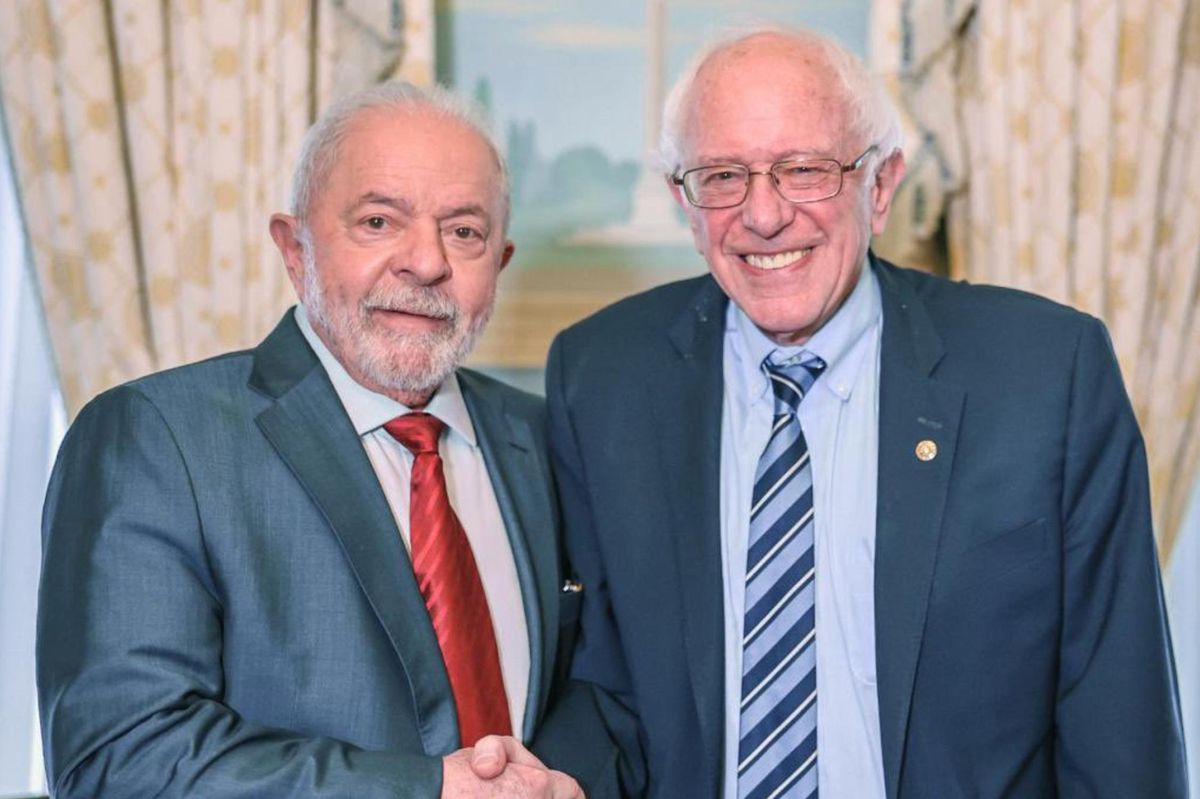
Ahead of his first White House meeting with U.S. President Joe Biden, Brazilian President Luiz Inácio Lula da Silva met Friday with members of the Congressional Progressive Caucus, including Sen. Bernie Sanders, who said topics of discussion included the far-right threat, combatting the climate and environmental emergencies, and supporting workers.
“I enjoyed a productive meeting this morning with President Lula of Brazil and his cabinet,” Sanders said in a statement. “Our countries share many challenges, including the threat of right-wing authoritarians who seek to undermine democratic institutions in both countries.”
“I am very impressed that in his short visit to the United States, Lula chose to speak to the AFL-CIO,” he added. “In that regard, we discussed ways to build an economy that serves all people, not just the wealthy and large corporations. We also discussed ways to advance workers’ rights and build strong unions.”
\u201cA pleasure to welcome @LulaOficial to Washington. We discussed the importance of defending democracy, advancing workers\u2019 rights, and increasing environmental and climate cooperation around the world.\u201d— Bernie Sanders (@Bernie Sanders) 1676048745Sanders continued:
Unlike his predecessor, Lula understands the enormous threat that climate change poses to our planet. We discussed ideas of how to increase international cooperation to preserve the environment for future generations. Scientists tell us that deforestation will have a devastating impact on climate change and the planet, and it is imperative that the United States work with Brazil and other countries to protect the Amazon.
If ever there was a time for international solidarity on these shared challenges, this is it. My hope and expectation is that the United States and Brazil will build a stronger partnership to address these crises.Da Silva said on Twitter that he “had the pleasure” of meeting Sanders, who was an outspoken advocate for his release after the former president—he also served from 2003-2010—was imprisoned on what critics called politically motivated corruption charges in 2018.
“We talked about democracy, the trade union movement, and better rights and jobs for workers,” da Silva added.
Three other members of the Congressional Progressive Caucus—Chair Pramila Jayapal (D-Wash.) and Reps. Ro Khanna (D-Calif.) and Alexandria Ocasio-Cortez (D-N.Y.)—also met with da Silva.
\u201cIt was an incredible honor to meet with Brazilian President @LulaOficial and @USProgressives members @RepAOC and @RepRoKhanna. \n\nPresident Lula\u2019s election has given hope to democratic and progressive movements around the world. \ud83e\uddf5\u201d— Rep. Pramila Jayapal (@Rep. Pramila Jayapal) 1676062547“It was an honor to meet with President Lula da Silva this morning, whose election has given hope to democratic and progressive movements around the world,” the caucus said in a statement. “We had a productive discussion on our shared commitments to environmental, social, and economic justice.”
“We also discussed opportunities to deepen U.S.-Brazilian cooperation in the fight against authoritarianism, strengthen relationships between legislators of the two countries, and a shared agenda for economic justice and freedom that can combat the appeals of right-wing extremism,” the statement said.
Later Friday, da Silva met with Biden as part of a reboot of U.S.-Brazilian relations following the right-wing presidencies of Donald Trump and Bolsonaro, the so-called “Trump of the Tropics.”
Last month, Bolsonaro—who has been in the United States since just before da Silva’s inauguration—applied for a six-month tourist visa as his legal woes, including an investigation of his role in the January 8 insurrection, mount.
WATCH LIVE: Biden meets with Brazil’s President Lula da Silva to discuss climate, democracy www.youtube.com
At an afternoon press conference in the White House’s Oval Office, da Silva told Biden through a translator that “the United States and the rest of the world can count on Brazil in the fight for democracy and the fight for the preservation of the Amazon rainforest.”
Biden said that “we have to continue to stand up for democracy and our democratic values that form the core of our strength,” while asserting the two presidents were on “the same page” about the climate emergency.
“Lula, he has everything on the table right now to be a democratic champion, given what happened in Brazil over the past month and a half,” Thiago de Aragão, a senior associate of the Americas program at the Center for Strategic and International Studies, told PBS NewsHour, referring to the January 8 attack by Bolsonaro supporters on the country’s Congress, Supreme Court, and presidential palace in a failed bid to prevent the peaceful transfer of power.
“So, having seen Biden in a similar situation during January 6, this is something that they can together focus on,” he added.
This post was originally published on Common Dreams.
-

Brazilian President Luiz Inácio Lula da Silva will meet Friday with Sen. Bernie Sanders as part of the recently inaugurated leftist leader’s visit to the United States, his first official foreign trip.
According to a statement from his administration, da Silva—who defeated far-right former President Jair Bolsonaro in last October’s runoff election—will meet with Sanders (I-Vt.) at Blair House in Washington, D.C. at 12:30 pm local time, five hours before President Joe Biden hosts Lula at the White House.
According to The Hill, Biden “extended an invitation as a sign of support after Bolsonaro’s supporters stormed the country’s Congress, Supreme Court, and presidential palace” last month in an echo of the January 6 attack on the U.S. Capitol by supporters of then-President Donald Trump.
Da Silva, who arrived at Andrews Air Force Base in Maryland on Thursday, is also scheduled to meet with Democratic members of Congress and representatives of the AFL-CIO union. He is accompanied on the trip by numerous members of his cabinet.
As the statement detailed:
Two of the world’s largest democracies, Brazil and the United States face similar challenges linked to political radicalization and hate speech in virtual space. Also at the center of the agenda: the reactivation of the Brazilian commitment to environmental conservation and the search for a greater engagement of developed countries in fulfilling their financing commitments in the climate area.
In the economic sphere, efforts are being made to boost investments, particularly in energy transition and clean energy generation, and greater integration of production chains. The United States is Brazil’s second-largest trading partner and the main destination for our exports of industrialized products.
Special attention should also be given to promoting the human rights agenda, in particular on topics such as the fight against hunger and poverty on a global scale, the rights of Indigenous peoples, and the fight against racism, in addition to the integration of the two million Brazilians who live in the United States, our largest overseas community.
Sanders was an outspoken advocate for da Silva’s release after the former president—he also served from 2003-2010—was jailed on what critics called politically motivated corruption charges in 2018. Da Silva was freed in November 2019 and in 2021 a Brazilian Supreme Court justice annulled Lula’s criminal convictions, restoring his political rights and opening the door for his remarkable comeback last year.
Da Silva and Bolsonaro will be in the U.S. at the same time. Last month, Bolsonaro applied for a six-month tourist visa as his legal woes, including an investigation of his role in the January 8 insurrection, mount.
-
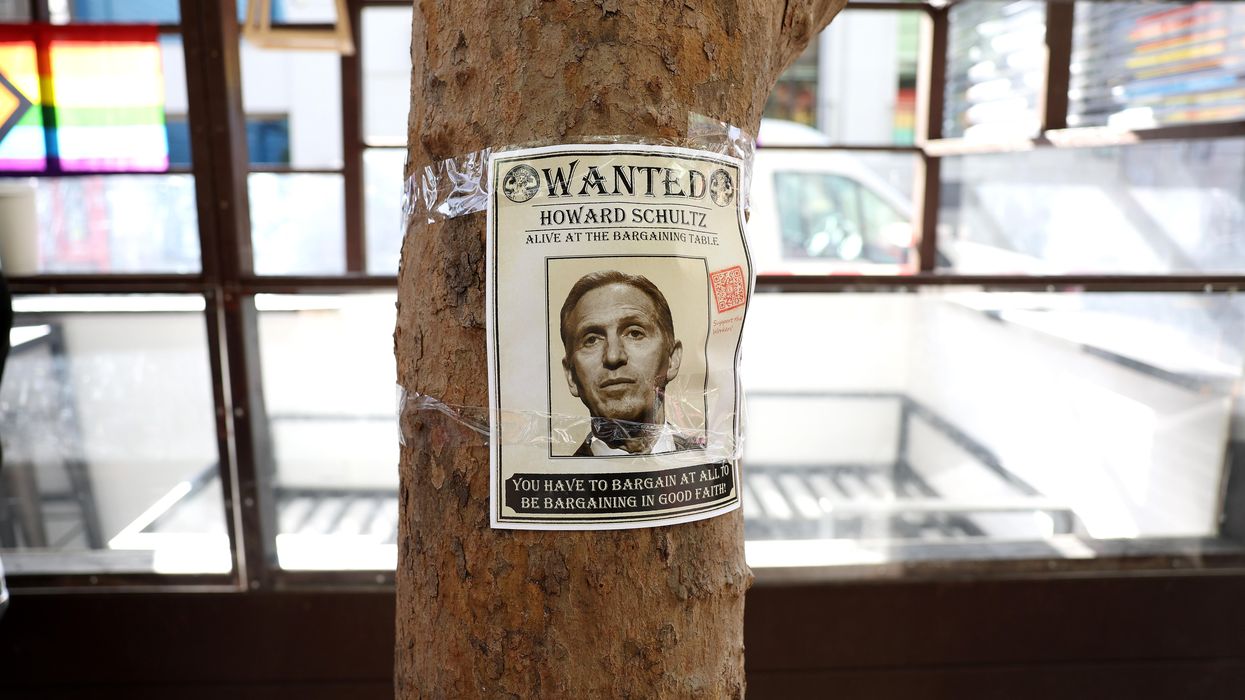
Independent Sen. Bernie Sanders of Vermont on Tuesday invited Starbucks CEO Howard Schultz to testify about the coffee giant’s “lack of compliance with federal labor laws.”
All 10 Democratic members of the Senate Committee on Health, Education, Labor, and Pensions (HELP) joined Sanders, who chairs the panel, in inviting Schultz to a hearing scheduled for March 9.
The letter—signed by Sanders and Sens. Patty Murray (D-Wash.), Bob Casey (D-Pa.), Tammy Baldwin (D-Wis.), Chris Murphy (D-Conn.), Tim Kaine (D-Va.), Maggie Hassan (D-N.H.), Tina Smith (D-Minn.), Ben Ray Luján (D-N.M.), John Hickenlooper (D-Colo.), and Ed Markey (D-Mass.)—gives Schultz until February 14 to confirm his attendance at the hearing.
“We greatly appreciate your assistance to the HELP Committee,” the lawmakers told Schultz, whose wealth increased by $800 million during the pandemic to nearly $4 billion.
\u201cToday, I joined with my Democratic colleagues on the Senate Health, Education, Labor and Pensions Committee to invite Starbucks CEO @HowardSchultz to testify at a hearing on his company’s labor practices.\u201d— Bernie Sanders (@Bernie Sanders) 1675884960Since December 2021, when baristas in Buffalo made history by forming the first unionized Starbucks in the United States, workers at nearly 280 of the coffee chain’s locations nationwide have voted to unionize. Organizers have won more than 80% of their campaigns despite the company’s unlawful intimidation and retaliation tactics.
In response to mounting demands for better wages, benefits, and conditions, “the $122 billion-dollar corporation has fought their workers every step of the way, including refusing to bargain a first contract in good faith, delay tactics, and a significant escalation in union-busting,” Sanders’ office noted in a statement.
“There have been 500 unfair labor practice cases filed against Starbucks and its affiliates,” the statement continued. “The National Labor Relations Board (NLRB) has issued 75 complaints in response to those charges and has sought emergency preliminary injunctive relief in five cases in the federal courts.”
“Sanders has sent three letters to Schultz in the last year calling on the CEO to end the egregious union-busting campaign the company has deployed against its own workers,” the Vermont Independent’s office added. “Schultz has not yet responded to or provided the documents requested in the most recent letter Sanders sent in January 2023.”
This post was originally published on Common Dreams.
-
Senators Bernie Sanders (I-Vermont) and Elizabeth Warren (D-Massachusetts) issued strong rebukes of the GOP after the House voted along party lines on Thursday to remove Muslim Rep. Ilhan Omar (D-Minnesota) from her spot on the House Foreign Affairs Committee, a move that Democrats and progressives have decried as racist and Islamophobic. “It is an outrage that every Republican voted to remove…
This post was originally published on Latest – Truthout.
-
In his new role as head of the committee overseeing education policy in the Senate, Sen. Bernie Sanders (I-Vermont) says a top priority will be fixing what he says are “pathetically low” starting salaries for teachers across the U.S., potentially starting with legislation to set a nationwide base salary to ensure that educators are paid properly. Sanders told Education Week this week that…
This post was originally published on Latest – Truthout.
-
Sen. Bernie Sanders (I-Vermont) is urging leadership of the Democratic National Committee (DNC) to vote on and pass a resolution that would ban Super PAC money in Democratic primaries as the influence of billionaires and dark money groups grows ever stronger in elections. This week, Sanders sent a letter to DNC Chair Jaime Harrison saying that dark money spending in elections is growing out of…
This post was originally published on Latest – Truthout.
-
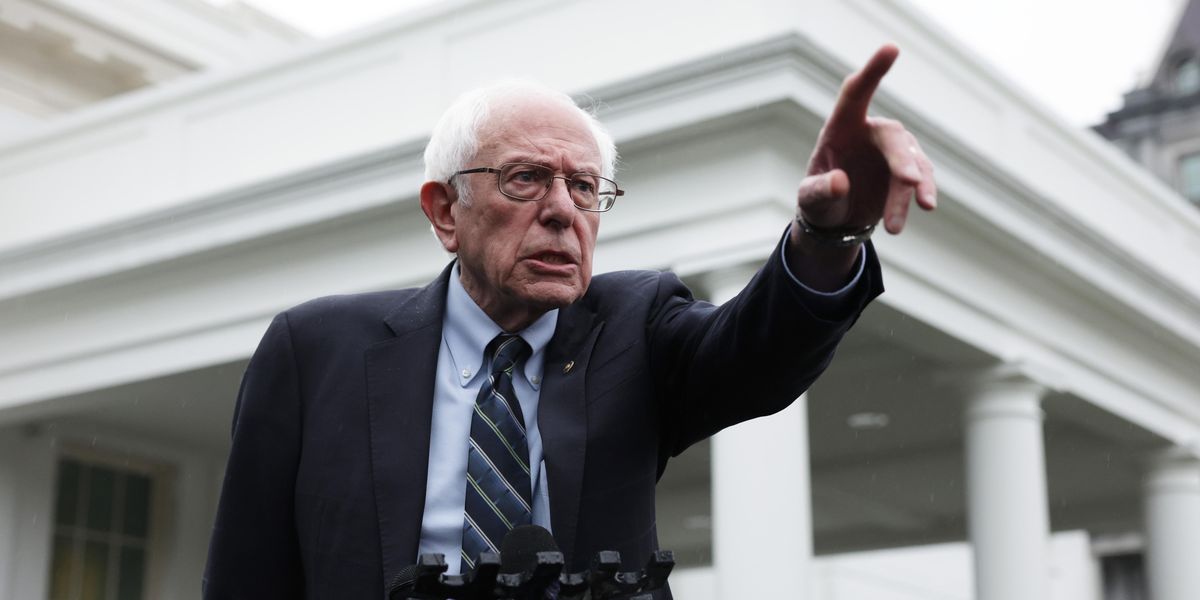
It is showdown time. Senator Bernie Sanders, new chair of the Senate Health, Education, Labor and Pensions Committee versus Big Pharma.
The self-described “democratic socialist” from a safe seat in Vermont has long been a Big Pharma nemesis. He has issued detailed critiques of what others have called a “Pay or Die” industry coddled by Congress that provides huge tax credits, free government-developed medicines, and free, with few exceptions, unbridled power to charge what their monopoly markets can’t bear.
Americans are charged the highest drug prices in the world. U.S. drug companies feed off taxpayer subsidies yet are under no reasonable price controls even for those new drugs they get free from the National Institutes of Health (NIH).
Senator Sanders has taken busloads of Vermonters to Canada to buy the same medicines sold in the U.S. at much cheaper prices just over the Canadian border. During his presidential campaigns, he assailed high drug prices and supported single-payer or full Medicare-for-All. The latter, he has told the pro-single-payer group, Physicians for a National Health Program, is off the table. Astonishingly, he is not going to push it. That leaves the drug companies on which to focus his power.
Big Pharma is ready for Bernie’s thunderous denunciations. As witnesses, Pharma executives play humble rope-a-dope and exude courtesy. Their 500 full-time lobbyists outnumber the members of the Senate, and Big Pharma’s backup brigades of corporate lawyers, propagandists and local chambers of commerce add to the power imbalance. They’ve survived Congressional table-thumping for decades by both Democrats and Republicans, knowing that it is largely all theatre.
The Inflation Reduction Act partially addresses drug pricing but is so full of loopholes and delays that it cannot be relied on to curb Big Pharma abuses.
The three drug companies—Eli Lilly, Novo Nordisk, and Sanofi—that control the price of insulin, have withstood verbal blast after verbal blast by candidates campaigning for public office. They’re still jacking up their price, 1,100% since the 1990s, even though it’s the same product and is sold in other wealthy countries for a fraction of what Big Pharma bills Americans in the U.S. Still, uninsured or underinsured people who need insulin have to pay, but are so hard-pressed they often ration their supply of this essential drug. Up to 1 in 4 people with Type 1 diabetes ration insulin. There are fatal consequences to such rationing.
The bosses of these three companies—Eli Lilly, Novo Nordisk, and Sanofi—are not ready to budge.
Nor are other giant drug companies ready to disturb their subsidized and anticompetitive business model. This model includes finding tricky ways to continually extend their monopoly patent period, taking control of the comparable generics, spending more on advertising and marketing than on research and development for which they get a generous tax credit from Uncle Sam, taking good care of key physicians who tout their products and gaming the insurance industry that in theory should be resisting gouging payouts for drugs.
The Inflation Reduction Act partially addresses drug pricing but is so full of loopholes and delays that it cannot be relied on to curb Big Pharma abuses.
Big Pharma is insatiably avaricious. They obstruct incoming free trade of lower-priced drugs while they outsource the production of key medicines to countries like China and India where drug manufacturing plants are poorly monitored by the understaffed U.S. Food and Drug Administration (FDA). Big Pharma has maneuvered Congress into having a large portion of the FDA’s meager budget come from the drug companies with the invisible strings attached. Imagine paying the police who are supposed to be holding you to the law.
There is more. With some Democratic House members joining the Republican legislators in 2003, a bill was passed expanding Medicare’s drug benefits and prohibiting Medicare from negotiating volume discounts with the drug companies. This has cost taxpayers tens of billions of dollars. Thank you, Republican Party – the constant avatar of corporate greed and leaving our country defenseless. For example, no antibiotics are now produced in the U.S. Many come from China. The GOP exhibits both a disregard for national security peril and a lack of patriotism, while it takes campaign cash from the drug goliaths.
The latest outrage comes from a report by the Wall Street Journal that Pfizer and Moderna intend to quadruple the price of their Covid vaccine, once their government purchasing contracts run out, to a range of $110-130 a shot. Bear in mind, both companies have made enormous profits from a government-guaranteed market of tens of billions of dollars. But readers may ask: “Won’t the higher price lead to fewer people being able to afford the vaccines, especially those not covered by insurance?” Correct. Big Pharma doesn’t care.
Moderna is a creature of the government’s National Institutes of Health research and development for the mRNA type Covid-19 vaccine. NIH scientists were in the lead, in collaborating with the scientists at this formerly tiny Boston-based company. The result turned Moderna into a multibillion-dollar firm. One would think being bred to commercial success by the taxpayers would result in some restraint. Not so.
Lives lost, injuries and diseases are at stake. For decades Big Pharma has refined its gigantic profits into an invulnerable racket that is impervious to media exposes, occasional prosecutions and fines, political campaign denunciations and keeping promises of patient relief.
Here is a solution. Since the NIH R&D programs have developed many drugs to the clinical trial level, let NIH proceed to manufacture these drugs in the good old USA and market them through government health programs.
There is a precedent from the Pentagon during the Vietnam War when the second leading cause of hospitalization for U.S. soldiers there was malaria. The drug companies were not willing to invest in developing anti-malarial medicines (not enough profit). The Pentagon set up its own “drug firm” inside Walter Reed Army Hospital and Bethesda Naval Hospital (now the Walter Reed National Military Medical Center). For a tiny fraction of what the drug companies would have charged the government, MDs and PhDs produced three new anti-malarial medicines, plus other medicines, which were positively reported in peer-reviewed medical journals.
So, let’s go, Bernie Sanders. This is “democratic socialism” fostering domestic and national security replacing unpatriotic, greedy “corporate socialism” that abandons the U.S. to communist China, leaving behind the federal safety regulatory watchdogs.
Let’s see how Bernie Sanders can use his staff and public hearings to jolt the Big Pharma toadies in Congress with the rumble from the people who are in dire straits. Senator Sanders, Senator Elizabeth Warren and other compatriots can barnstorm the country and energize super majorities of both liberal and conservative Americans to back their cause since they all bleed the same color.
Otherwise, it’s just going to be the same old song – “There goes Bernie again – baying at the moon.”
This post was originally published on Common Dreams.
-
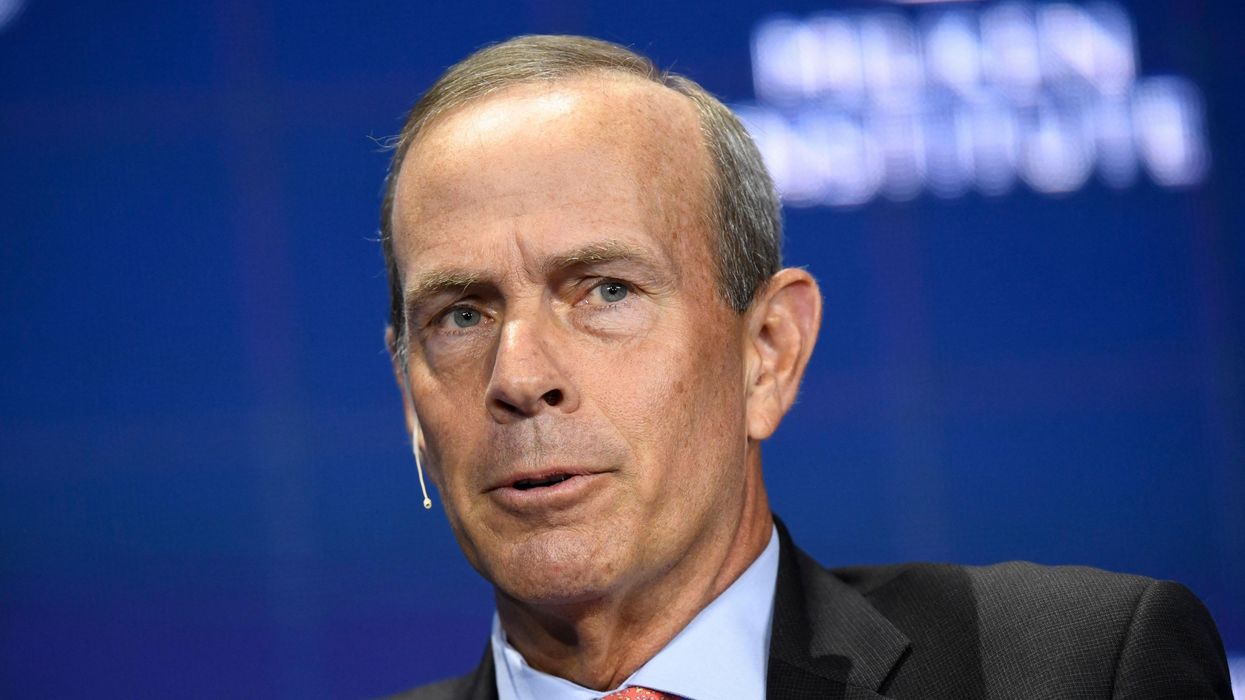
Climate and consumer advocates reacted angrily Thursday to Chevron’s announcement of a planned $75 billion stock buyback amid record profits and a worsening planetary emergency exacerbated by the continued extraction and burning of fossil fuels.
California-based Chevron said Wednesday it would start buying back shares on April 1, and that the new repurchase will be three times the size of the last one, which began in 2019. Bloomberg notes that the new buyback is equivalent to nearly a quarter of Chevron’s market value.
“Companies like Chevron are doing absolutely massive stock buybacks after price gouging working families for over a year,” tweeted Pennsylvania state Rep. Malcolm Kenyatta (D-181). “Then these same companies will come back hat-in-hand begging for more tax breaks and tax cuts.”
Brian Vickers, a business administration professor at Northeastern State University in Oklahoma, tweeted, “I kept saying gas price increases were straight-up price gouging and not indicative of the price of oil, and here’s all the proof I was right.”
\u201cAfter decimating Indigenous groups in the Amazon and evading a $9.5 billion pollution judgement in Ecuador, @Chevron is now reporting a $75 billion buyback of its own stock. How the rich get richer while the poor die.\n\nThis company should lose its license to operate.\u201d— Steven Donziger (@Steven Donziger)
1674760480The Biden administration—which despite a worsening climate emergency has been pressing oil companies to increase production to keep gas prices down—denounced Chevron’s planned buyback.
“For a company that claimed not too long ago that it was ‘working hard’ to increase oil production, handing out $75 billion to executives and wealthy shareholders sure is an odd way to show it,” White House spokesperson Abdullah Hasan said in response to news of the buyback.
Thursday’s announcement came as Chevron, BP, ExxonMobil, Shell, and TotalEnergies are set to announce a record $199 billion in collective 2022 profits, 50% higher than the previous record set over a decade ago, according to Bloomberg.
\u201cNEWSFLASH: Chevron should not be doing *$75 BILLION* in stock buybacks while price gouging American families and accelerating the climate crisis.\u201d— Climate Power (@Climate Power)
1674755389Chevron’s $11.2 billion third-quarter profit last year was its second-highest on record and nearly double the $6.1 billion it reported during the same period in 2021.
Reacting to Chevron’s impending buyback, biogeochemist and Earth sciences professor Gabriel Filippelli said “so much is wrong about this.”
“Record profits for Chevron and the [Biden] administration is mad that they don’t pump that into more drilling?” he asked. “They should pump it into more renewables and a real divestment strategy to stop producing their deadly product.”
On Wednesday, U.S. Sens. Catherine Cortez Masto (D-Nev.) and Ben Ray Luján (D-N.M.) reintroduced the Fair and Transparent Gas Prices Act, which the lawmakers argue “would give the Federal Trade Commission the tools it needs to investigate unfair practices, provide market transparency, and prevent price gouging by Big Oil and gas companies.”
\u201cBig Oil is making record profits, while Nevadans still have some of the highest gas prices in the country. I see it every time I fill up my tank.\n\nMy bill will investigate Big Oil for price gouging and work to stop any unfair practices hurting Nevadans.\nhttps://t.co/bT3Qv1m5kx\u201d— Senator Cortez Masto (@Senator Cortez Masto)
1674745500Last March, Rep. Ro Khanna (D-Calif.) introduced legislation that would tax excess oil company profits and use the proceeds to pay American households a quarterly rebate. That same month in the Senate Bernie Sanders (I-Vt.) introduced the Ending Corporate Greed Act, which would impose a 95% tax on the windfall profits of major companies.
President Joe Biden has threatened to back a windfall profits tax on Big Oil unless companies ramp up production, but has not yet done so.
-
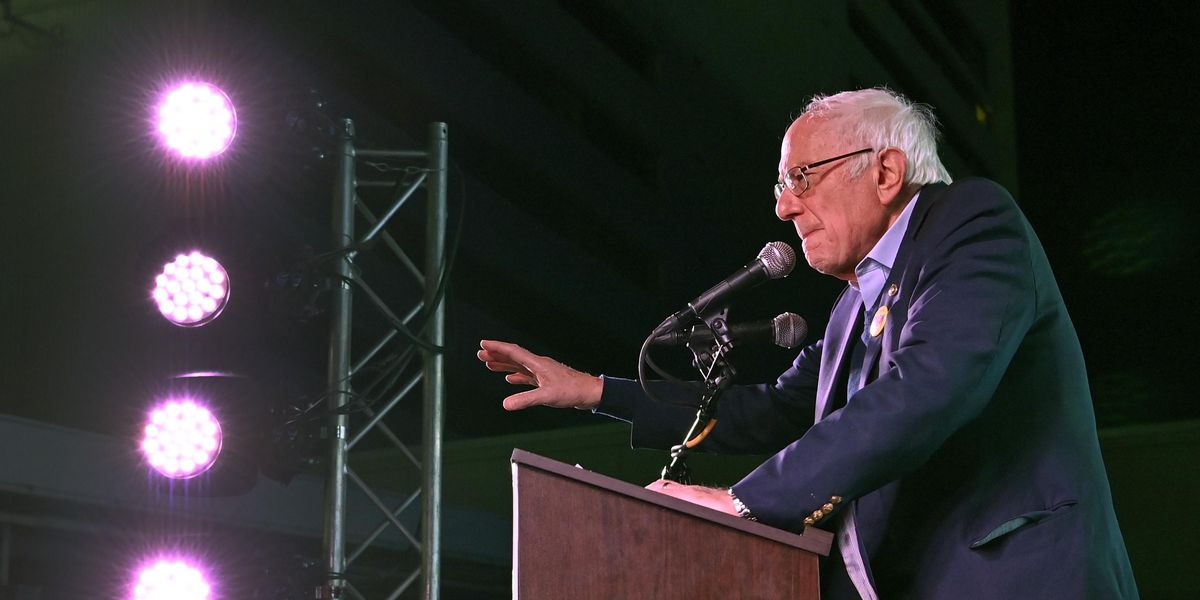
“Today, millions of Americans are making the unacceptable choice between feeding their families or buying the medicine they need. Seniors from Vermont to Alaska are forced to split pills in half and many have died because they did not have enough money to fill their prescriptions.”
That’s what U.S. Sen. Bernie Sanders (I-Vt.) wrote in an opinion piece published Monday by Fox News as the two-time Democratic presidential candidate prepares to take charge of the Senate Health, Education, Labor, and Pensions (HELP) Committee.
Sanders stressed that despite national divisions, “on one of the most important matters facing our country the American people—Democrats, Republicans, Independents, Progressives, Conservatives—could not be more united. And that is the need to take on the unprecedented corporate greed of the pharmaceutical industry and to substantially lower the outrageously high price of prescription drugs.”
If Congress had the courage to take on the greed of the pharmaceutical industry, we could cut the price of prescription drugs in America by at least 50%.
Various polls from the past two years show that 88% of U.S. adults support making it easier for generic medicines to come to market and restricting how much drug companies can increase prices each year while 83% support allowing the government to negotiate lower prices for Medicare and private insurance.
The Inflation Reduction Act signed last year by President Joe Biden contains modest drug pricing reforms—including allowing Medicare negotiation for some medicines—but not nearly at the scale that Sanders and others had advocated.
“All over this country, the American people are asking, why it is that they pay, by far, the highest prices in the world for prescription drugs?” Sanders wrote. “Why is it that nearly 1 out of every 4 adults in America cannot afford their prescription medication? Why do nearly half of all new drugs in the United States cost more than $150,000 a year?”
“How is it that in Canada and other major countries the same medications manufactured by the same companies, sold in the same bottles are available for a fraction of the price that we pay in the United States?” the senator asked, recalling when, in 2019, he joined a busload of people with diabetes who traveled from Detroit, Michigan, to Windsor, Ontario to buy insulin for a fraction of what they pay in the United States.
“The answers,” he asserted, “can be summed up in three words: Follow the money.”
Sanders noted the billions of dollars that Big Pharma has pumped into stock buybacks and political lobbying as well as the millions spent on campaign contributions in recent decades. He also pointed out the massive profits that industry giants rake in annually “as Americans die because they cannot afford the medications they need.”
\u201cWhen Americans can’t afford lifesaving medicine because of greedy Big Pharma, it’s time we rethink this entire system. \n\nGreedy pharma firms rip off Americans while Pfizer, Moderna swim in profits\n\nhttps://t.co/scdY9PXCno\u201d— Keilah Bee McDonald (@Keilah Bee McDonald) 1674484698“Examples of corporate greed within the pharmaceutical industry are limitless. Let’s start with Moderna,” the senator wrote, detailing how the company “received $1.7 billion from U.S. taxpayers to research and develop the Covid-19 vaccine and billions more to distribute it to the American people,” but now reportedly plans to hike the price.
As Common Dreams previously reported, Sanders expressed his outrage over Moderna’s potential price increase for the vaccine—a 4,000% markup over its estimated production cost of less than $3 per dose and a quadrupling of the $26.36 price tag for the U.S. government—earlier this month in a letter to CEO Stéphane Bancel.
On Monday, Moderna was far from the senator’s only target. He also called out Pfizer’s ties to the Republican Party as well as Sovaldi for cashing in on a hepatitis C pill; Japanese drugmaker Astellas for increasing the U.S. price of the prostate cancer drug Xtandi; and Eli Lilly for hiking the price of the medical insulin Humalog.
“It does not have to be this way,” Sanders argued. “The reality is that if Congress had the courage to take on the greed of the pharmaceutical industry, we could cut the price of prescription drugs in America by at least 50%. How? By preventing the pharmaceutical industry from charging more for prescription drugs in the U.S. than they do in Canada, Britain, Germany, France and Japan—a concept that is not only supported by progressives, but former President Donald Trump. I will soon be re-introducing legislation in the Senate to do just that.”
“A lifesaving drug is not effective if a person who needs that drug cannot afford it,” he concluded. “How many more Americans must die before Congress finally has the guts to stop the pharmaceutical industry from getting away with murder?”
While Sanders’ takeover of the Senate HELP Committee reportedly has some healthcare industry lobbyists worried—given his longtime criticism of corporate influence on Capitol Hill and support for policies to serve working people, slash drug costs, and create a public universal healthcare system—progress on those fronts is expected to be hampered over the next two years by right-wing Democrats and the GOP’s narrow control of the U.S. House of Representatives.
This post was originally published on Common Dreams.
-
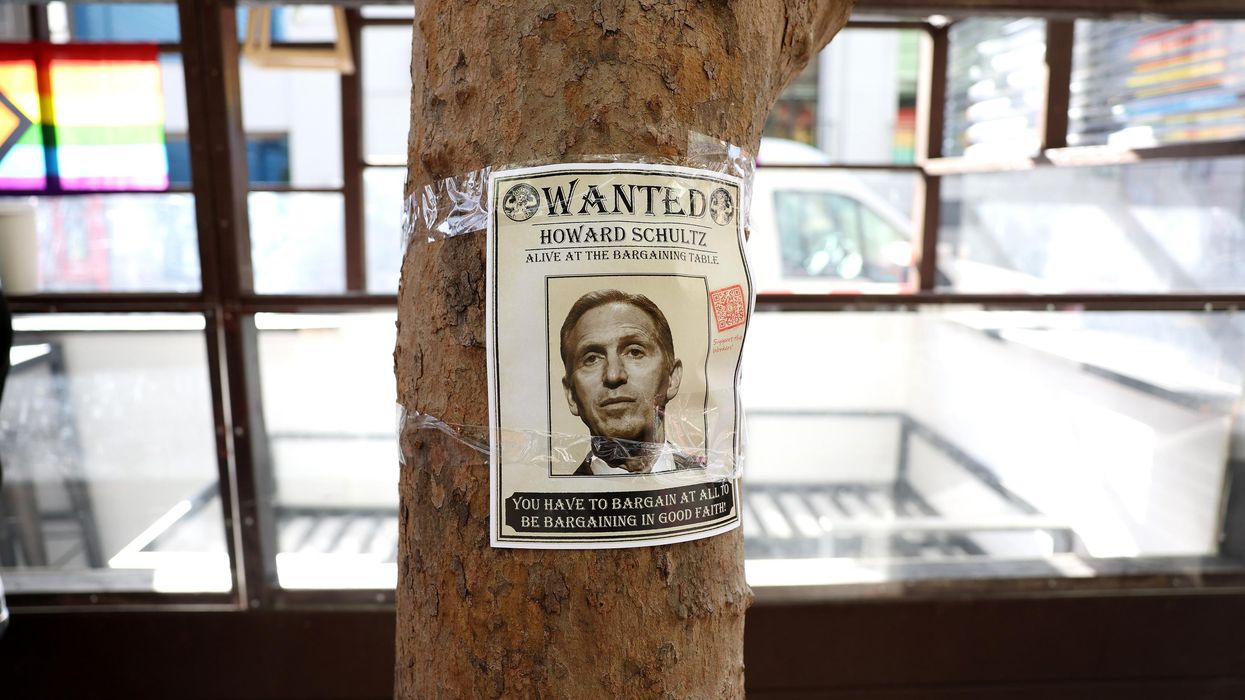
Sen. Bernie Sanders demanded in a letter to Starbucks CEO Howard Schultz on Wednesday that the company immediately end its “ruthless union-busting campaign” as the coffee giant’s employees continue to face obstruction and retaliation while trying to organize—and win their first contract.
Sanders, the incoming chair of the Senate Health, Education, Labor, and Pensions (HELP) Committee, wrote that he has “serious concerns over Starbucks’ concerted and relentless campaign against its workers’ efforts to organize” and argued that the corporation’s management has displayed a “flagrant disregard” for employee rights and federal law.
Since December 2021, workers at more than 270 Starbucks locations across the United States have voted to unionize—and the union has achieved a remarkable win rate of over 80% even amid aggressive backlash and illegal intimidation tactics from the company.
“There have been nearly 500 unfair labor practice cases filed against Starbucks and its affiliates,” Sanders noted in his letter to Starbucks’ billionaire chief executive, who is set to depart the company in April. “Further, the National Labor Relations Board (NLRB) has issued 69 complaints in response to those charges and has sought emergency preliminary injunctive relief in five additional cases in the federal courts. These allegations include claims that you personally threatened a worker by saying, ‘If you hate Starbucks so much, why don’t you work somewhere else?’”
“These violations include discriminatorily discharging more than a dozen union organizers, attempting to interfere with workers’ right to distribute and wear union material, and refusing to bargain with the union,” the Vermont senator continued. “Remarkably, Starbucks argued that a preliminary injunction reinstating seven employees allegedly discharged for unionizing their store in Memphis, Tennessee was unnecessary because the union had prevailed in the election anyway.”
The new letter decrying Starbucks’ anti-union conduct is the second Sanders has sent to Schultz in fewer than three months, but the latest comes as the senator is preparing to take charge of the Senate HELP Committee—a panel with investigative authorities, including subpoena power, that Sanders intends to use to spotlight corporate abuses.
“The American people know that workers have a constitutional right to form unions and that corporations that engage in illegal union-busting activities must be held accountable,” Sanders said in a speech late Tuesday on the state of the U.S. working class.
In his letter on Wednesday, Sanders wrote, “Mr. Schultz, my request to you is simple: Obey the law. Sit down with your workers and bargain in good faith. Agree to a first contract that is fair and just. Stop shutting down pro-union shops and reinstate workers who have been fired for union organizing.”
“Sit down with your workers and bargain in good faith. Agree to a first contract that is fair and just.”
In November and December, unionized Starbucks workers across the country walked off the job in an attempt to highlight the company’s rampant union-busting and pressure management to stop using well-worn stall tactics to sabotage contract negotiations.
Last month, the NLRB said Starbucks unlawfully refused to engage in contract negotiations at more than 20 unionized locations in Oregon and Washington state.
Starbucks workers also say the company is imposing sweeping hours cuts following the holiday season, leaving already-precarious workers struggling to afford basic necessities.
Erin Bray, a union supporter from Starbucks’ University Way store in Seattle, said Wednesday that workers at the location are “contemplating applying for food stamps and partial unemployment (neither of which are guaranteed) just to keep roofs over our heads.”
“Some baristas were given ‘good-faith estimates’ of 35 hours per week, and Starbucks is deliberately shorting those baristas by implementing new labor metrics,” said Bray. “This just goes to show that our bosses’ promises aren’t worth a damn, which is precisely why we want fair scheduling policies written down in black and white as part of our collective bargaining agreement.”
This post was originally published on Common Dreams.
-
The growing problem of crushing medical debt was raised by Senator Bernie Sanders in a national address Tuesday on the American working class. We hear from patients and discuss the fight to stop hospitals from suing patients, garnishing wages and putting liens on homes of people facing medical bills they can’t afford. We are joined by Elisabeth Benjamin, vice president of Health Initiatives at the…
This post was originally published on Latest – Truthout.
-
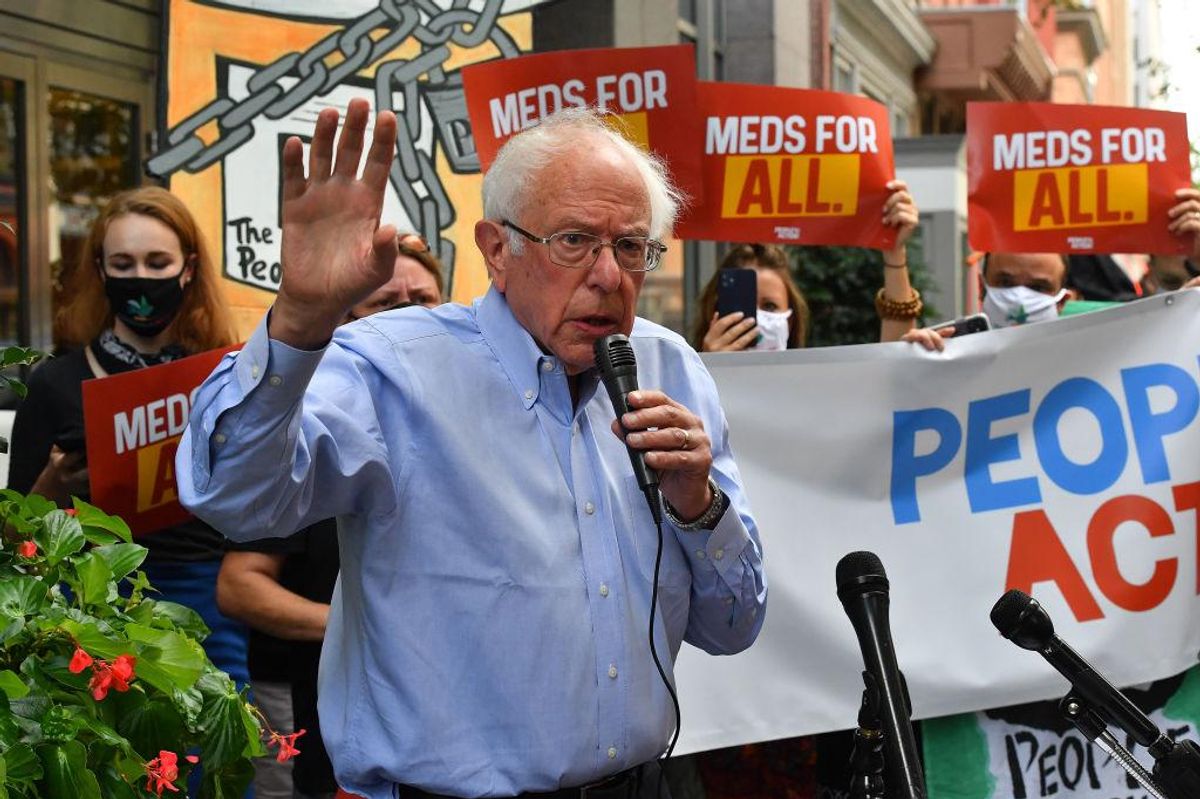
Nearly 40% of people in the United States said they or a family member delayed medical care last year due to the prohibitively high cost of treatment under the nation’s for-profit healthcare model, according to a Gallup survey published Tuesday.
As U.S. residents faced soaring prices for private insurance, the percentage of them forgoing medical services as a result of the costs climbed 12 points in one year, from 26% in 2021 to 38% in 2022. Of those who reported postponing treatment last year, 27% said they or a family member did so “for a very or somewhat serious condition,” up nine points from the previous year.
“After health insurance companies raised prices 24% last year and made nearly $12 billion in profits last quarter, 38% of Americans now report they or a family member put off needed medical care because it was too expensive,” Sen. Bernie Sanders (I-Vt.) tweeted in response to the new findings. “We must end this corporate greed. We need Medicare for All.”
Gallup has been collecting self-reported data on this issue since 2001. The firm’s latest annual healthcare poll, conducted from November 9 to December 2, found the highest level of cost-related delays in seeking medical care on record, topping the previous high of 33% (2019 and 2014) by five points and marking the sharpest annual increase to date. The proportion of people who said they or a family member postponed treatment for a serious condition in 2022 (27%) also surpassed the previous all-time high of 25% (2019).
\u201cThe number was up 12 points from 2021.\n\n27% said the delayed medical treatment “was for a very or somewhat serious condition.”\n\nhttps://t.co/tlcR97pdbe\u201d— More Perfect Union (@More Perfect Union) 1673977118Lower-income households, young adults, and women in the U.S. are especially likely to have postponed medical care due to high costs.
According to Gallup:
In 2022, Americans with an annual household income under $40,000 were nearly twice as likely as those with an income of $100,000 or more to say someone in their family delayed medical care for a serious condition (34% vs. 18%, respectively). Those with an income between $40,000 and less than $100,000 were similar to those in the lowest income group when it comes to postponing care, with 29% doing so.
Reports of putting off care for a serious condition are up 12 points among lower-income U.S. adults, up 11 points among those in the middle-income group, and up seven points among those with a higher income. The latest readings for the middle- and upper-income groups are the highest on record or tied with the highest.Another recent survey found that just 12% of Americans think healthcare in the U.S. is handled “extremely” or “very” well. Such data provides further evidence of the unpopularity of a profit-maximizing system that has left 43 million people inadequately insured, kicked millions off of their employer-based plans when the coronavirus caused a spike in unemployment, and contributed to the country’s startling decline in life expectancy.
Last week, prior to the publication of Gallup’s poll, Rep. Ro Khanna (D-Calif.) wrote on social media: “If you don’t believe corporate greed has deadly consequences, take a look at the decline in American life expectancy. We need Medicare for All, and we must raise the minimum wage.”
\u201cIf you don\u2019t believe corporate greed has deadly consequences, take a look at the decline in American life expectancy. We need #MedicareForAll, and we must raise the minimum wage.\u201d— Ro Khanna (@Ro Khanna) 1673449140While the current, profit-driven U.S. healthcare system—which forces millions to skip treatments to avoid financial ruin and allows the pharmaceutical and insurance industries to rake in massive profits—is deeply inefficient and unpopular, polling has consistently shown that voters want the federal government to play a more active role in healthcare provision, with a majority expressing support for a publicly run insurance plan.
Recent research shows that a single-payer system of the kind proposed in Medicare for All legislation introduced by Sanders and Rep. Pramila Jayapal (D-Wash.) could have prevented hundreds of thousands of Covid-19 deaths in the U.S. over the past two and a half years.
Not only would a single-payer insurance program guarantee coverage for every person in the country, but it would also reduce overall healthcare spending nationwide by an estimated $650 billion per year.
“Millions of Americans across this country are avoiding seeking lifesaving medical care because they’re afraid it will bankrupt them,” Khanna, a universal healthcare advocate, tweeted last week. “In many cases, their fears are well-founded. We need Medicare for All.”
This post was originally published on Common Dreams.
-

A group of 15 U.S. senators on Thursday demanded answers from Southwest Airlines’ CEO regarding the company’s management of the disastrous 2022 holiday season, when thousands of travelers were stranded in airports amid nearly 16,000 flight cancelations.
“The mass flight cancellations at Southwest Airlines… during the last week of December ruined the holidays for tens of thousands of travelers, stranding them at gates without their bags and forcing them to miss celebrations with families and friends. Although winter storm Elliott disrupted flights across the country, every other airline operating in the United States managed to return to a regular flight schedule shortly thereafter—except Southwest,” the senators wrote in a letter led by Sens. Ed Markey (D-Mass.) and Richard Blumenthal (D-Conn.) to company CEO Robert Jordan. “Southwest must take all necessary steps to ensure that this debacle never happens again.”
“In total, Southwest canceled nearly 16,000 flights during this period. As you have rightfully acknowledged, Southwest simply failed its customers,” wrote the lawmakers, who include 14 Democrats and Sen. Bernie Sanders (I-Vt.). “For consumers across the country, this failure was more than a headache—it was a nightmare.”
\u201cNEW: Senators send letter to Southwest CEO Bob Jordan “demanding” answers for holiday meltdown. $LUV\u201d— Edward Russell (@Edward Russell) 1673622065The letter continues:
Travelers were stranded across the country for days at a time, forced to spend hours on hold with Southwest customer service representatives or in line at Southwest service desks at the airport. Just as the storm set off a chain reaction of problems for Southwest, these cancellations inevitably led to bad consequences for travelers who could not return to their loved ones over the holidays, lacked access to critical medicine and other personal items in their misplaced bags, or were forced to miss days at work.
Your employees—flight attendants, pilots, ground workers, customer service representatives, dispatchers, ramp workers, and others—were also victims. Some found themselves stranded across the country. Others had to work mandatory overtime in frigid temperatures or spent countless hours seeking impossible-to-find solutions to help furious customers find their way home.The senators noted that “based on initial comments from Southwest executives and news reports, the main cause of Southwest’s meltdown appears to be legacy software that Southwest uses to coordinate its crews and planes.”
“Yet, Southwest has long known that its software was outdated and the Southwest Airlines Pilots Association had warned that such a debacle was inevitable unless Southwest invested in new scheduling systems,” the lawmakers wrote. “Instead of making those investments, Southwest distributed over $1.8 billion in dividends to its shareholders and bought back over $11 billion in its shares between 2011 and 2020. And just last month, Southwest announced that it would issue a $428 million dividend in the first quarter of this year—the first airline to announce a dividend since the start of the pandemic.”
\u201c.@SouthwestAir\u2019s holiday meltdown was inexcusable. No business can treat its customers like that and get away with it. The passengers and the public need answers about what went wrong and how Southwest will make sure it never happens again.\nhttps://t.co/lvpnb6Xj4N\u201d— Ed Markey (@Ed Markey) 1673567578To “better understand the causes of these cancellations and ensure a breakdown of this magnitude never happens again,” the senators request answers to questions, including:
- Why Southwest was unable to return to a normal flight schedule after winter storm Elliott;
- Why Southwest’s pilot and flight attendant scheduling software was unable to efficiently process cancellations;
- Why Southwest failed to modernize systems so they could effectively coordinate crew and flight schedules after major storms and during major travel periods;
- How and when Southwest plans to modernize its systems and what, if any, changes the company has made to its crew scheduling software system since the meltdown;
- How many Southwest employees worked overtime—and how many were forced to work overtime—between December 1 and January 2;
- How many passenger refunds the airline gave—and rejected—and whether passengers on canceled flights were reimbursed for hotels, meals, and alternative transportation;
- How many customers experienced delayed, damaged, or lost baggage and wheelchairs, and whether any passengers are still waiting for these items;
- When the decision was made to resume paying stock dividends, and whether other uses for the funds—like software updates or employee pay hikes—were considered; and
- Whether Southwest plans any stock buybacks for 2023, and if so, would they be tied to company performance.
Southwest sparked further outrage this week by announcing the promotions of several company executives, a move that Liz Zelnick, director of the Economic Security and Corporate Power program at Accountable.US, called indicative of “the behavior of a company with no intention of changing course from management decisions that seek to enrich shareholders while leaving consumers holding the bag.”This post was originally published on Common Dreams.
-

A group of progressive senators raised alarm this week over a pernicious outgrowth of the United States’ for-profit healthcare system: medical credit cards.
In a letter to the chief executives of Wells Fargo and Synchrony Financial—two large issuers of medical credit cards—Sens. Elizabeth Warren (D-Mass.), Ed Markey (D-Mass.), Bernie Sanders (I-Vt.), Chris Murphy (D-Conn.), and Sherrod Brown (D-Ohio) expressed concern that “given the circumstances in which these cards are used, medical credit cards could be predatory to patients seeking medical care and leave patients stuck paying higher costs with ‘hefty, high-interest debt.’”
“The concern here is the current structure of our healthcare system often requires that patients enter into medical debt in order to access services they need,” reads the letter, which was made public this week. “Within that context, patients—often under duress because of concerns about their medical care—are being pushed into and then locked into medical credit cards despite the availability of alternative payment options that might be more beneficial and offer lower interest rates.”
By contrast, medical credit cards often come with high interest rates following so-called “no interest” periods that banks deceptively use to lure in customers who are desperate to pay for costly medical treatments. In 2013, the Consumer Financial Protection Bureau (CFPB) ordered CareCredit—Synchrony Financial’s medical credit business—to refund up to $34.1 million to “consumers who were victims of deceptive credit card enrollment tactics.”
Last month, the CFPB hit Wells Fargo—which offers a medical credit card named Health Advantage—with $3.7 billion in penalties for a slew of abuses and called the institution “one of the most problematic repeat offenders of the banks and credit unions.”
Crain’s Chicago Business recently reported that “as healthcare costs and insurance deductibles rise, more hospitals in Chicago and around the country are teaming up with banks to market medical credit cards and other loans to patients who lack the insurance or funds to pay for care.”
“Hospitals that convince patients to take medical credit cards get paid upfront by banks at a time when unpaid bills are straining their budgets. Lenders, for their part, see an opportunity to capitalize on the growing gap between the cost of medical care and what many Americans can afford,” the newspaper continued. “Patients who take the card get money to pay for care, solving a short-term dilemma. But a quick decision made in a high-stress situation can create long-term financial problems. Patients who can’t drum up the cash to pay off the initial balance within an introductory period end up with hefty credit card debt that carries some of the highest interest rates in the industry.”
More than 100 million people are saddled with medical debt in the United States, collectively owing upwards of $200 billion.
Last year, Kaiser Health News spotlighted the story of Cheyenne Dantona, whose situation is appalling but increasingly common in the United States, where obtaining lifesaving treatment often entails financial ruin:
Dantona, 31, was diagnosed with blood cancer while in college. The cancer went into remission, but when Dantona changed health plans, she was hit with thousands of dollars of medical bills because one of her primary providers was out of network.
She enrolled in a medical credit card, only to get stuck paying even more in interest. Other bills went to collections, dragging down her credit score. Dantona still dreams of working with injured and orphaned wild animals, but she’s been forced to move back in with her mother outside Minneapolis.
“She’s been trapped,” said Dantona’s sister, Desiree. “Her life is on pause.”In their letter, the senators pointed to several “disturbing” features of medical credit cards, including that “the available credit is typically set to the cost of the service, ‘meaning the card is maxed out immediately, damaging card holders’ credit scores.’”“The cards may also adversely impact consumers’ credit reports because of the way they are treated by credit reporting agencies: the agencies recently agreed to remove 70% of medical debt from credit reports, but these changes will not benefit medical credit card holders because their debt is considered credit card debt and as such is ‘viewed less favorably by the bureaus,’” the lawmakers wrote.
“Banks have identified medical credit cards as a lucrative opportunity to profit off of the worsening crisis of patients who are unable to afford their medical care,” the lawmakers continued, demanding that the bank executives provide information about their medical credit card businesses such as how many accounts are in collections and how many healthcare providers they have partnered with.
“As we work to reform our healthcare system so no individual faces medical debt,” the senators added, “we remain concerned about circumstances that serve only to exacerbate financial harm of unaffordable healthcare.”
Sanders, a letter signatory and the incoming chair of the Senate Health, Education, Labor, and Pensions Committee, has decried the “very concept” of medical debt, arguing it “should not exist.”
During his 2020 presidential campaign, Sanders offered a proposal to wipe out existing medical debt in the United States.
“In the wealthiest country in the history of the world,” the senator said at the time, “one illness or disease should not ruin a family’s financial life and future.”
This post was originally published on Common Dreams.
-
Healthcare industry lobbyists who are used to exerting significant influence over legislation and committee activity in Washington, D.C. are fretting that they may see their sway diminish after Sen. Bernie Sanders — a vocal opponent of K Street’s outsized power — takes over the Senate’s top health panel in the new Congress. Politico reported Tuesday that “multiple lobbyists representing health…
This post was originally published on Latest – Truthout.
-
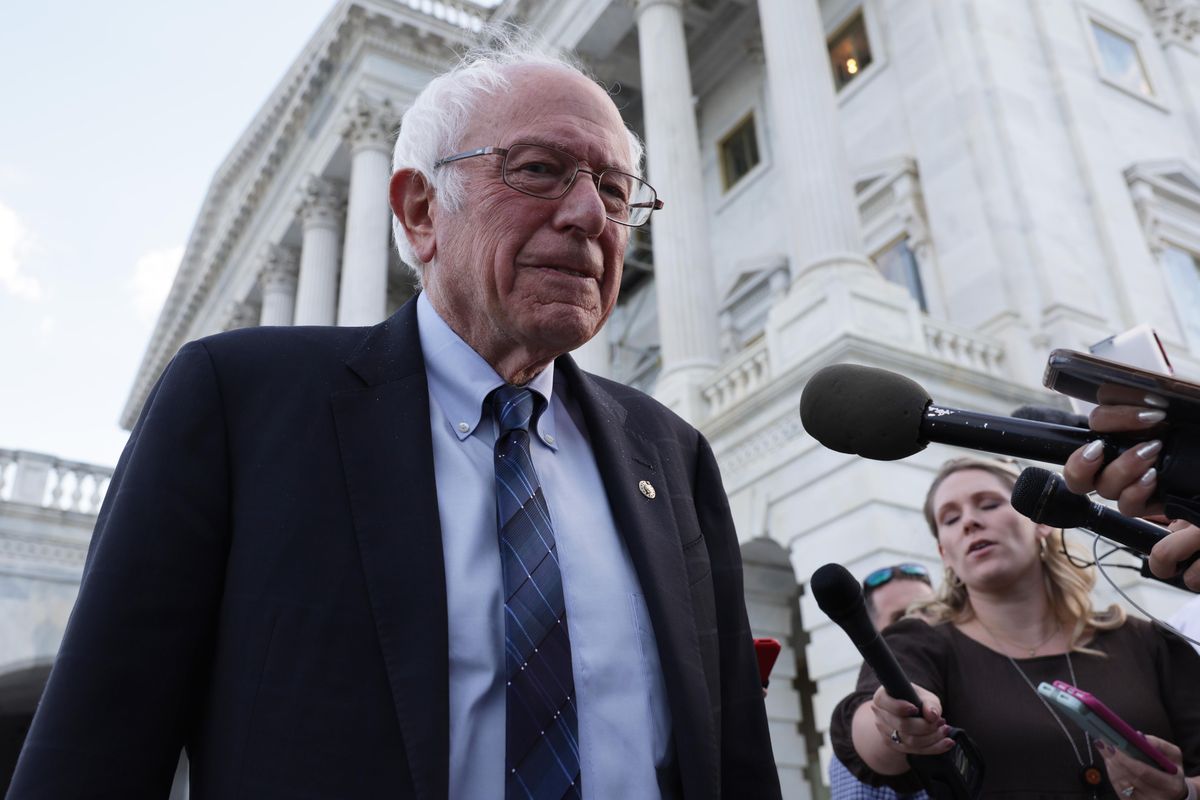
Healthcare industry lobbyists who are used to exerting significant influence over legislation and committee activity in Washington, D.C. are fretting that they may see their sway diminish after Sen. Bernie Sanders—a vocal opponent of K Street’s outsized power—takes over the Senate’s top health panel in the new Congress.
Politico reported Tuesday that “multiple lobbyists representing health insurers, pharmaceutical companies, providers, and health systems” expressed concern that “they’re going to have to ‘bank shot’ their advocacy to get their messages across—lobbying other lawmakers on the committee and getting into the ears of progressive policymakers and left-leaning organizations.”
“Sanders’ well-chronicled antagonism toward lobbyists has some concerned they’ll be unable to blunt criticism of their clients’ profits or corporate executive salaries,” the outlet continued. “They are anxious Sanders might seek to revive policies like importing drugs from Canada and other nations, an idea loathed by drugmakers.”
Michaeleen Crowell, a lobbyist with the firm S-3 Group who previously worked as Sanders’ chief of staff, said it “will not be business as usual for K Street” with the Vermont Independent at the helm of the powerful Senate Health, Education, Labor, and Pensions (HELP) Committee.
One lobbyist said healthcare industry influence-peddlers are particularly concerned about how Sanders—a longtime champion of Medicare for All and congressional action to sharply reduce prescription drug prices—will wield the committee’s subpoena power.
“Subpoena authority is certainly something that gets people paying attention,” Rafi Prober, co-head of the congressional investigations practice at Akin Gump Strauss Hauer & Feld, told Politico, which noted that “it’s almost certain that health executives will be called to testify before the committee—a reputational risk for corporations.”
Last month, Sanders said in an interview with CNBC that subpoena power should be used “intelligently and judiciously.”
“Given the fact that we are looking at an unprecedented level of corporate greed, that we’re looking at union-busting, that we’re looking at extremely high prices in healthcare, prescription drugs that are caused by the greed of the industries—I think we have to take a hard look at these issues,” Sanders said. “And if using subpoena power becomes necessary, then that’s something we can do.”
Rick Claypool, a corporate power researcher with the consumer advocacy group Public Citizen, had no sympathy for lobbyists’ complaints about the incoming chair of the Senate health panel.
“Lol good,” Claypool tweeted in response to Politico‘s reporting on lobbyists’ worries heading into the new congressional session.
Craig Holman, Public Citizen’s Capitol Hill lobbyist on ethics and campaign finance, told Politico that “the prospects of a Sanders-led HELP committee are refreshing and exciting.”
“The chairman will give everyone their due, including lobbyists representing the public’s interest, without being swayed by campaign cash,” Holman said. “Sanders’ new leadership position will help build some equity between the influence of the haves and have-nots.”
“We’re looking at extremely high prices in healthcare, prescription drugs that are caused by the greed of the industries.”
Sanders is set to become chair of the Senate HELP Committee as the Biden administration moves to carry out provisions of a new law that, over the next few years, will impose modest constraints on the pharmaceutical industry’s vast power to set and raise prescription drug prices, which are significantly higher in the U.S. than in other wealthy countries.
By 2026, Medicare will for the first time be required to negotiate the prices of a small number of expensive prescription drugs, a change that Sanders has advocated for years—though he criticized the Inflation Reduction Act provisions as inadequate.
Big Pharma lobbied aggressively against the Inflation Reduction Act and, in concert with its Republican allies in Congress, is currently working to obstruct implementation of the law.
Merith Basey, executive director of Patients for Affordable Drugs Now, said in a statement Tuesday that “2023 marks a momentous year for patients—millions of people in the U.S. will begin to feel the impacts of the historic drug price reforms in the Inflation Reduction Act, both on their health and well-being as well as in their wallets.”
“While we’re delighted to begin the year knowing that millions of people on Medicare Part D will now have their insulin copays limited to $35 a month and will have access to free vaccines, we acknowledge that there is so much more to be done,” said Basey. “This is just the beginning.”
This post was originally published on Common Dreams.
-

Sen. Bernie Sanders issued a New Year’s Day message on Sunday as he gets ready to take over as chair of the powerful Health, Education, Labor and Pensions Committee in the U.S. Senate when Congress comes back into session later this month.
Laying out his priorities for the committee in 2023, Sanders put a familiar focus on the need for an improved and expanded Medicare system and lower drug costs as he lambasted the nation’s “cruel and dysfunctional” for-profit system that leaves tens of millions of people uninsured or grossly underinsured.
“What we have in this country is really disgraceful” in terms of healthcare, Sanders says in the video address posted to YouTube and shared on social media.
Fixing the nation’s healthcare system, he said, is “an issue, together, we are going to have to work on. We must have the courage to stand up to the greed and recklessness of the insurance companies and the drug companies” who continue to oppose progressive reforms, including the push for Medicare for All.
“We have to work to substantially lower the cost of prescription drugs,” Sanders added, “and we have got to work to guarantee healthcare as a human right for all of our people, not a privilege.”
Watch the full video:
Happy New Year. Here’s what’s on my mind for 2023. youtu.be
On education, Sanders blasted that the richest nation on Earth—which somehow manages to provide “massive tax breaks to the billionaire class—still allows its heroic teachers to struggle in underfunded schools that disadvantages all children trying to learn. He also criticized a higher education system that has saddled an estimated 45 million college students and their families with outrageous levels of debt.
With labor the other key area of jurisdiction for the committee he will soon be leading, Sanders lamented in his address the existence of a “very rigged economy with unprecedented level of income and wealth inequality” that is hurting working families in favor of making life better the already rich and powerful.
“I’m thinking about a country today where at this moment workers all across this country—at Starbucks, Amazon, nurses at hospitals, workers at factories, young people at college campuses—they are organizing unions in order to receive better wages and working continues, because they know, at the end of the day, that unity—bringing people together for collective bargaining—is the only way that many workers are going to get the benefits, wages, and working conditions that they so desperately need.”
With that context, Sanders said these workers in unions or those trying to organize a new union are being “vigorously” opposed by corporate bosses using “fierce and illegal anti-union action.”
Countering those anti-union efforts by Starbucks, Amazon, and other major employers, he said, will be something he intends to do from his chair position.
Acknowledging political realities, however, Sanders said he knows very well that he will not have the power to simply pound his gavel of the new committee “and lo and behold all these important pieces of legislation get passed.”
“It ain’t gonna happen that way, that’s for sure,” said Sanders. While admitting that Republicans and certain “conservative Democrats” are not going to be supportive of his progressive agenda, Sanders said, “That doesn’t mean we give up on these issues. We’re going to take these issues to the people and continue the fight.
Despite partisan opposition on many things, Sanders said he has genuine hope that some progress can be made on things like reducing the cost of prescription drugs and childcare in the upcoming session.
In the end, Sanders called on listeners to join together in the battles to come in the new year “as we stand up and fight to make sure that working families in this country can live with the kind of dignity and security that they are entitled to.”
This post was originally published on Common Dreams.
-
Senator Bernie Sanders is not asking anyone to be shocked that Donald J. Trump was very good at not paying taxes, but he also wants people to know that the disgraced former Republican president is far from the only rich person or powerful corporation who gets away with paying little or nothing each year federal income tax. In a tweet on Friday evening, Sanders said: “When it comes to tax avoidance…
This post was originally published on Latest – Truthout.
-

Senator Bernie Sanders is not asking anyone to be shocked that Donald J. Trump was very good at not paying taxes, but he also wants people to know that the disgraced former Republican president is far from the only rich person or powerful corporation who gets away with paying little or nothing each year federal income tax.
In a tweet on Friday evening, Sanders said: “When it comes to tax avoidance, Trump is not alone.”
Sanders then listed a handful of well-known and highly-profitable companies that paid nothing in federal income tax in 2020, the most recent year detailed figures are available for many companies.
“Yes. Dr. King was right,” added Sanders: “We have socialism for the rich, rugged capitalism for the rest.”
\u201cWhen it comes to tax avoidance, Trump is not alone.\n\nFederal income taxes paid in 2020:\n\nNike: $0\nFedEx: $0\nHP: $0\nSalesforce: $0\nDish Network: $0\nCharter Communications: $0\nDuke Energy: $0\n\nYes. Dr. King was right. We have socialism for the rich, rugged capitalism for the rest.\u201d— Bernie Sanders (@Bernie Sanders) 1672435263On Friday, the House Ways and Means Committee released to the public Trump’s tax returns after a yearslong legal fight to obtain them from the IRS after the former president broke with precedent by refusing to release them voluntarily.
What the returns and associated documents released by the committee show is an inside look into how very wealthy individuals diminish their tax liability or pay nothing at all year after year.
Specifically in 2020, Trump—despite his vast business holdings—paid no federal income taxes at all. Also in 2020, despite repeated promises to the public that he would donate all his presidential salary to charity, the New York Times reported Saturday that the tax returns reveal he made no charitable gifts that year.
According to the Institute on Taxation and Economic Policy (ITEP), at least 55 major U.S. corporations—including those named by Sanders—paid $0 in federal taxes on massive profits in 2020.
ITEP’s analysis shows that these 55 corporations “would have paid a collective total of $8.5 billion for the year had they paid [the staturory federal rate of 21 percent].” Instead, including by benefiting greatly from the tax law that Trump and a GOP-controlled Congress passed in 2017, those companies collectively “received $3.5 billion in tax rebates.”
In all, that’s $12 billion less in taxes paid by some of the most profitable and largest companies in the nation.
As numerous outlets have detailed, Bloomberg‘s reporting states how “massive losses and large tax deductions in Donald Trump’s returns reveal how the former president was able to use the tax code to minimize his income tax payments.” According to the outlet:
The records illustrate how Trump, as a business owner and a real estate developer, is eligible for a bevy of tax breaks that most taxpayers can’t claim. The filings, which cover 2015 to 2020, also detail how Trump was affected by the 2017 tax-cut bill he signed into law.
The documents further show the sheer complexity of the tax code. As for many US business owners, the filings span hundreds of pages to account for domestic and foreign assets, credits, deductions, depreciation, and more.Warren Gunnels, a top aide and advisor to Sen. Sanders, said Friday night that far-reaching tax breaks is not the only benefit that Trump received which too many regular people are still denied in the United States: free, taxpayer-funded healthcare.
Throughout his presidency, including when he was suffering from Covid-19, Trump was provided care via the Veterans Administration.
“In 2020, not only did Trump pay nothing in federal incomes taxes, not only did he get a $5.47 million tax refund, he also paid ZERO for his hospital stay at Walter Reed—a 100% government-run hospital,” tweeted Gunnels.
“Yes,” he added, echoing Sanders. “Trump loves socialism for himself, rugged capitalism for the rest.”
This post was originally published on Common Dreams.
-
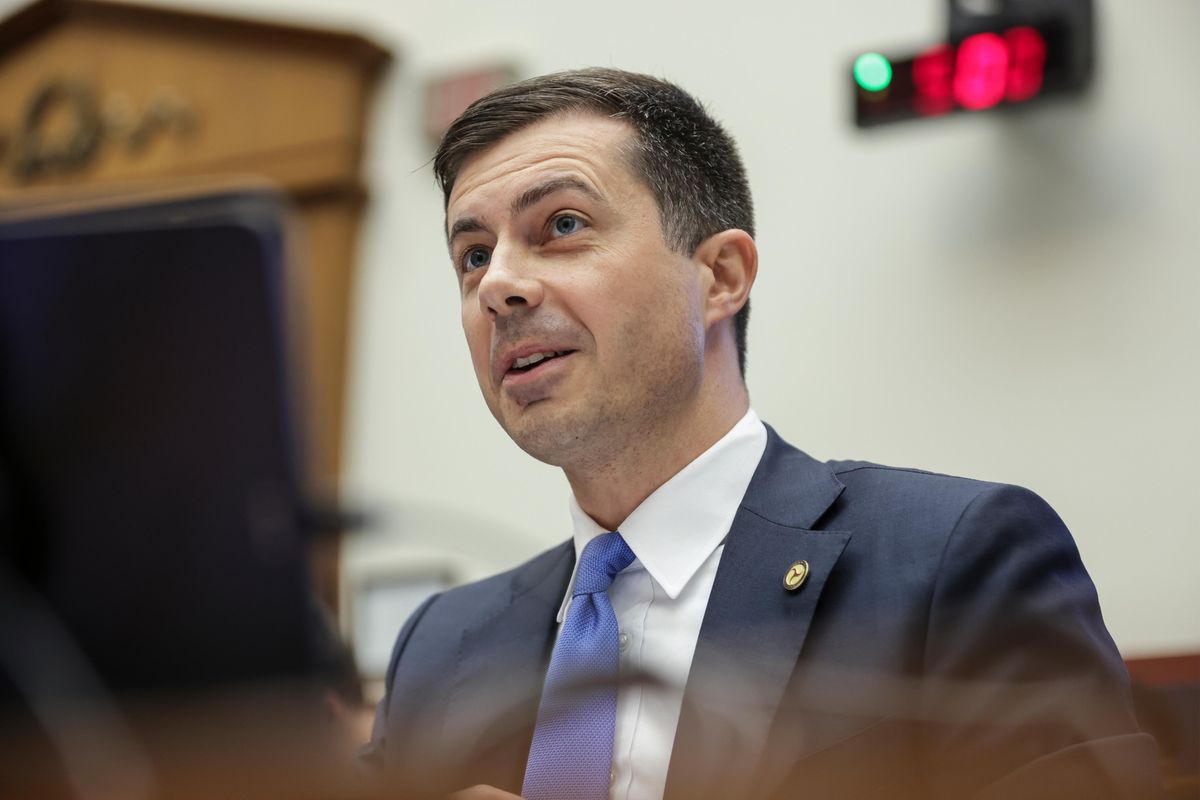
Transportation Secretary Pete Buttigieg is facing growing backlash from members of Congress and corporate watchdogs who say his department failed to take sufficient action in the lead-up to mass flight cancellations surrounding the Christmas holiday, a meltdown that has its roots in decades of airline consolidation, greed, and lax oversight.
On Thursday, Rep. Ro Khanna (D-Calif.) took to Twitter to argue that “this mess with Southwest could have been avoided,” singling out the airline responsible for the overwhelming majority of recent flight cancellations in the United States.
Khanna noted that he joined Sen. Bernie Sanders (I-Vt.) earlier this year in urging the Department of Transportation (DOT) “to implement fines and penalties on airlines for canceling flights” after a wave of cancellations during a July 4 travel surge. Sanders specifically called for a “fine of $27,500 per passenger for all domestic flights that are delayed more than two hours and all international flights that are delayed more than three hours when passengers are forced to wait on the tarmac,” as well as a “fine of $15,000 per passenger for all domestic flights that are delayed more than two hours.”
“Why were these recommendations not followed?” Khanna asked Thursday.
The Transportation Department did fine six airlines a total of $7.25 million in November for major delays in refunding customers whose flights were canceled or changed, but Southwest and its top competitors were spared any penalties, prompting criticism that Buttigieg left out the “worst offenders.”
William McGee, a senior fellow for Aviation and Travel at the American Economic Liberties Project, argued Thursday that while “there’s plenty of blame to go around” for the latest cancellation crisis, “Secretary Buttigieg has spent months appearing to regulate rather than actually regulating.”
“How do I know? Because I’ve spent thousands of hours annually for 23 years fighting airlines. Those of us in advocacy trenches can testify to DOT inaction,” McGee wrote. “Criticizing [Buttigieg’s] lack of action is neither unfair nor inaccurate. When advocates met with him in 2021, most of us were impressed and optimistic. But he’s failed to take real action.”
“He has broad powers to act on unfair and deceptive acts—and airlines have done both,” McGee added. “Southwest was inevitable after he failed to punish awful behavior all year.”
\u201c17/17 And so @econliberties is proposing a better, more passenger friendly industry. Let’s eliminate federal preemption, so airlines can be treated as all companies are\u2014subject to oversight. And please write to #EndAirlineGreed:\nhttps://t.co/pw5PkumlrK\nhttps://t.co/GcbDONkmj1\u201d— William J. McGee (@William J. McGee) 1672387670In the face of mounting criticism, Buttigieg on Thursday sent a letter to Southwest CEO Bob Jordan calling the airline’s mass cancellations “unacceptable” and demanding that affected passengers be refunded as required under federal law, which mandates refunds if airlines cancel or significantly delay flights and the customer opts not to travel.
“I hope and expect that you will follow the law, take the steps laid out in this letter, and provide me with a prompt update on Southwest’s efforts to do right by the customers it has wronged,” wrote Buttigieg, who in September downplayed the potential for holiday travel chaos.
The letter and Buttigieg’s promise to investigate airline violations are unlikely to quell outrage over the Transportation Department’s tepid approach to the industry’s misconduct, which state officials and members of Congress had been vocally warning about months ahead of the current debacle.
In November, Sens. Ed Markey (D-Mass.), Maria Cantwell (D-Wash.), and Richard Blumenthal (D-Conn.) called on Buttigieg to strengthen the Transportation Department’s proposed rule aimed at bolstering protections for customers seeking ticket refunds.
The senators argued the rule, which has yet to be finalized, doesn’t go nearly far enough to safeguard consumers and prevent airlines from skirting the law.
“Of the nearly 16,000 complaints to DOT in the first half of 2022, nearly two-thirds—10,089—were about airline refunds, compared to just 742 refunds complaints in 2019, an increase of 1,260%,” the lawmakers wrote. “These numbers tell a clear story: Airlines are delaying and canceling historic numbers of flights and failing to provide consumers with the refunds to which they are entitled.”
As The American Prospect‘s Robert Kuttner explained, the DOT rule in its current form “does nothing to force the airlines to refund the roughly $10 billion still owed to consumers for canceled flights since the pandemic began in 2020.”
“It does nothing but allow DOT and Buttigieg to claim they are making an advance on policy while actually taking a step backwards. Codifying the policy will take time and resources away from just enforcing the existing interpretation, at a time when cancellations are high,” Kuttner added. “These actions amount to a smoking gun. The airlines are mocking DOT policy, and Buttigieg is letting them get away with it. By kicking the can down the road with a new rule that will be subject to an extended comment period and further delay, Buttigieg lets the airlines off the hook for actions that flagrantly violate current DOT policy right now.”
In early August, Markey joined Sen. Elizabeth Warren (D-Mass.) and other lawmakers in introducing legislation that would “provide consumers an enforceable right to a full cash refund for flight and ticket cancellations” and enact other reforms that go beyond the DOT’s proposed rule.
“Enough is enough: Travelers are sick of wasting their valuable time fighting the airlines to receive their legally-required cash refunds,” Markey said at the time. “And they are tired of making flight reservations months in advance, only to face a health scare that forces them to choose between canceling a nonrefundable flight, or traveling and risking the health of their fellow passengers.”
This post was originally published on Common Dreams.
